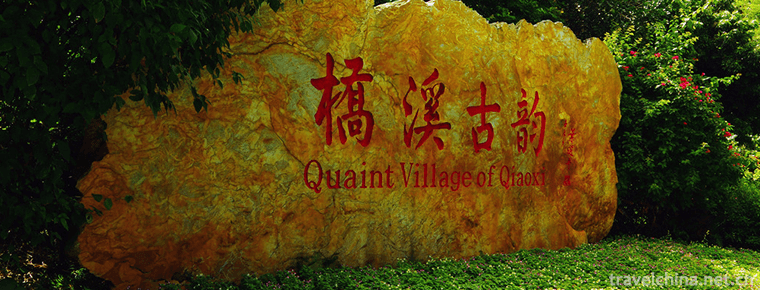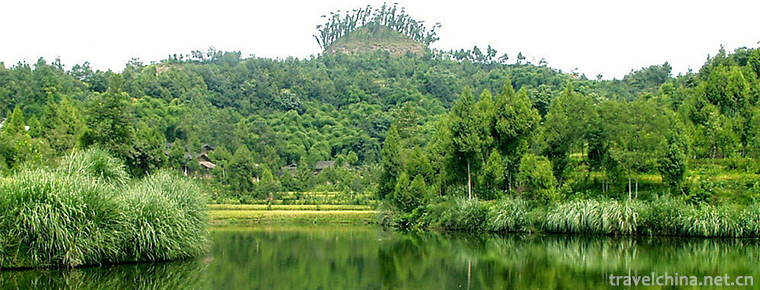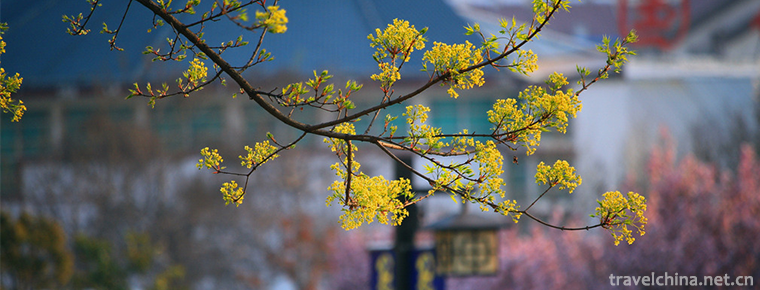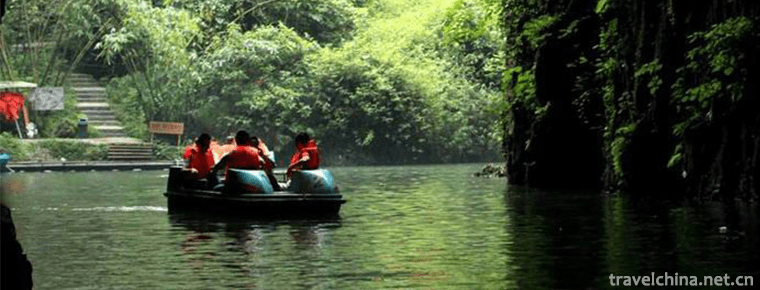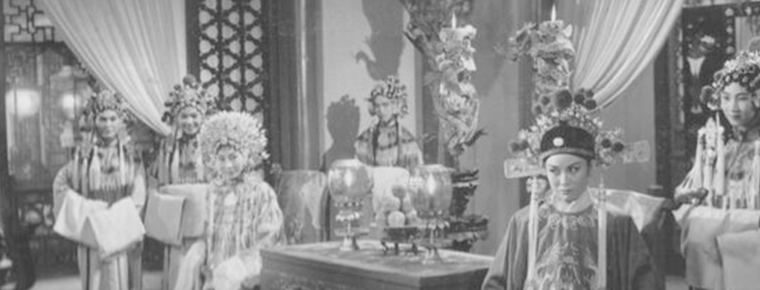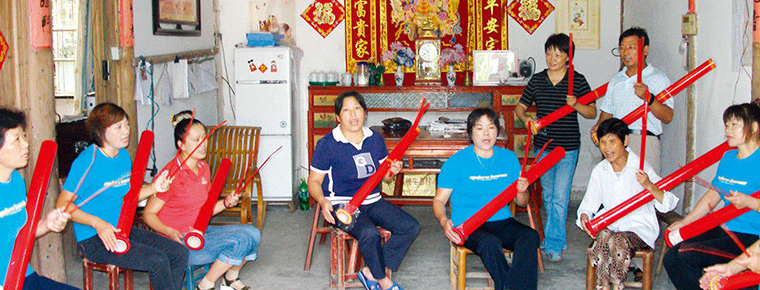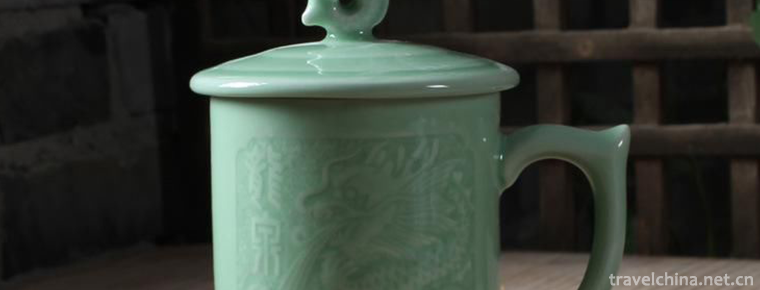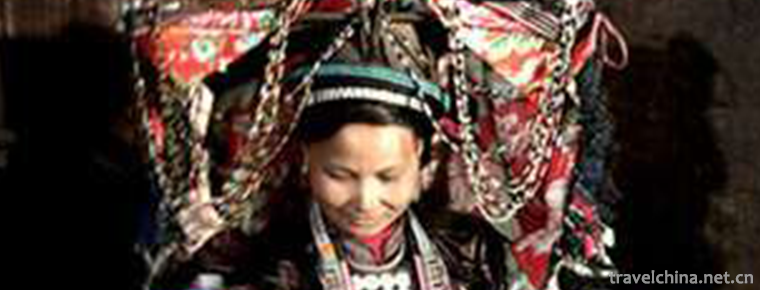Eighteen Sayings on Tibetan Wedding Banquet
Eighteen Sayings on Tibetan Wedding Banquet
The Eighteenth Tibetan Wedding Banquet is a kind of folk oral literature spread in the Tibetan inhabited areas of the eastern agricultural region of Qinghai Province. Its manifestation is the eighteen procedures of the local Tibetan wedding congratulations. The 18th wedding banquet always runs through the wedding ceremony, mostly rap and improvisation, usually completed by more than a dozen people in stages, and it takes several days at its peak. The Eighteenth Theory of Tibetan Wedding Banquet bears a long historical tradition and strong national characteristics. It has high research value in Tibetan History, Folklore, Ethnology, Language and Literature. List the second batch of national intangible cultural heritage in China.
historical origin
The Eighteenth Announcement of Tibetan Wedding Banquet is the eighteen kinds of eulogy and congratulations that run through the eighteen procedures of Tibetan wedding congratulations. It is mainly spread in the Tujia Autonomous County, Ledu County, Minhe and Hui Autonomous County, Hualong Hui Autonomous County and Xunhua Sala Autonomous County in the eastern agricultural region of Qinghai Province. The Tibetans living here basically live in Naoshan and Shallow Mountains. The district has been engaged in farming and animal husbandry for generations.
Tibetan wedding banquet theory has a long history. According to the records of Tubo Historical Documents and other related documents, the historical origin of Tibetan wedding banquet theory can not be calculated concretely in time and space, but depends on various folk customs of marriage survival, such as Princess Wencheng and Song Zangganbu when they became relatives in Lhasa, in order to set off the wedding atmosphere, congratulations, forms and marriages were given. Some of the passages in Yan 18's theory are similar. However, with the change of the times, especially in the 18th century (during the reign of Qianlong in the Qing Dynasty), after the rebellion in Luobu, Tibet and Danjin was put down, the Qing government restricted Tibetan speaking to Tibetans living in Huangzhong, Datong and Huangyuan for generations. Tibetan is the basis for Tibetan people to say the 18th wedding banquet. Therefore, the spread of the Eighteenth Legend of Tibetan Wedding Banquet is shrinking day by day.
Forms of expression
There is a saying among Tibetan people in Qinghai Province - "The wedding banquet lasts for eighteen days and nights, and there are eighteen procedures for wedding congratulations". That is to say, the real situation of the wedding banquet. The 18th wedding banquet always runs through the wedding ceremony, mostly rap and improvisation, usually completed by more than a dozen people in stages, and it takes several days at its peak.
primary coverage
After hundreds of years of development and evolution, the contents of the Eighteenth Tibetan Wedding Banquet in Eastern Agricultural Region of Qinghai Province are as follows:
I. Sacrifice to God. In the early morning of the girl's wedding day, her family burned incense to worship the mountain gods and family gods, and blessed the girl to embark on a new life journey.
Second, combing braids. Two or three middle-aged women with diligent hands and feet, husband and children, outstanding appearance and good reputation were selected from the tribe to braid the married girl, while their elders and brothers delivered braided speeches.
Third, the comb said. Generally speaking, it is women who comb their braids.
4. Wedding songs. When a girl is about to go out, she or her sister and other female elders say different words.
Fifth, Outlet Song. It is also a separate word spoken by female elders such as elder sisters.
Sixth, parents'teachings. On the horse, the bride's parents took her daughter's hand to say a word.
Seventh, said the horse. When the family members ride to the bridegroom's house, the family members first praise the family members'horses, because horses are the most commonly used means of transportation in the past, and even have corresponding speeches on saddles.
Eighth, the mattress and other horse eulogies are finished. When the horse-riding team is about to dismount, the mattress prepared in advance will be laid on the ground and let the team dismount. At this time, there will be the mattress eulogies.
9. Ode to Land. After receiving Hada from the horse and drinking the welcome wine, the family members will offer sacrifices to the local mountain gods, indicating that they have stepped into the other side's territory. Please take more care of them.
Praise the house. After entering the bridegroom's house, he must first offer sacrifices to the patron god of the bridegroom's house, and then praise the house.
Tea said. When the first cup of fragrant milk tea is brought to your hand, you should start the tea and say, then you can have dinner.
12. Wine said. When a meal is served, a toast should be started. At this time, there is a toast.
The wine said.
13. Wedding banquet. After having enough wine and meals, the wedding banquet begins. It is the most important and exciting part of the wedding. Generally speaking, it is for the oldest qualified person in the send-in team.
14. Tie your belt. The bride's elder brother and others usually tie a belt to the bridegroom.
Fifteen, clothes said. After fastening the waistband for the groom, he began to hang out the bride's clothes one by one, and began to say the clothes.
16. Blessing. When the procedure is basically over, an old man blesses the bride and groom.
17. Entrustment. Towards the end of the wedding, the bride is entrusted by the bride's family to the groom's parents, relatives and friends.
Eighteen, auspicious words. At the end of the wedding, there is an auspicious word, which is a summary of the wedding and a wish for the future.
At the same time, accompanied by the 18th wedding banquet, participants were amazed at the diversity of Tibetan culture by various colorful singing and dancing activities, delicious food and gorgeous Tibetan costumes.
Inheritance value
The eighteenth theory of Tibetan wedding banquet bears a very rich cultural connotation and shows a lot of unknown Tibetan cultural information. Only through this carrier can these ancient cultural information be preserved. If it is lost, these extremely precious cultural information will also disappear. Therefore, the study of the Eighteenth Theory of Tibetan Wedding Banquet is of great academic value to Tibetan history, folklore, ethnology, language and literature.
Inheritance situation
Since then, the Eighteenth Tibetan Wedding Banquet Theory has been circulated in the form of oral transmission among the people. There are no text versions and image versions. This original way of inheritance highlights its fatal shortcomings. For example, Xia Wu, a banquet speaker in Ningba Village, Daoshan Tibetan Township, Xunhua County, was one of the few inheritors in the village. He was a well-known banquet speaker when he was alive. However, after the death of the old man, many of his skills have not yet been passed down. Few village speakers can complete the banquet. With the development of the times and the change of the social environment, many traditional folk activities with Tibetan characteristics have been weakening. The 18th wedding banquet theory is inevitably endangered, and its prospects are not optimistic.
Digging, rescuing, sorting out and protecting the Tibetan wedding banquet 18 said that it occupies an important position in the Tibetan folk culture. Although the experts and scholars in Qinghai Province have done some research work, they are only based on records, investigations and comparisons.
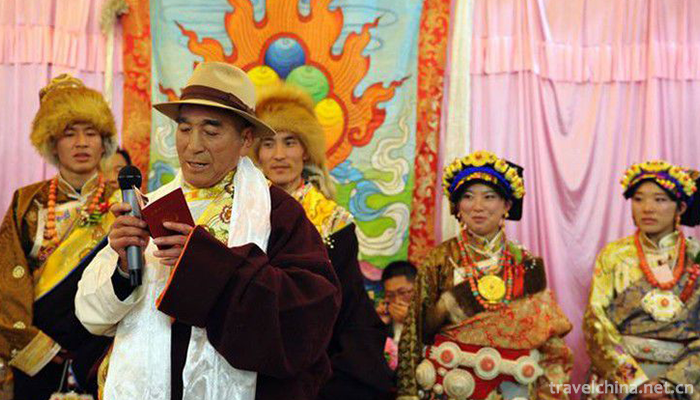
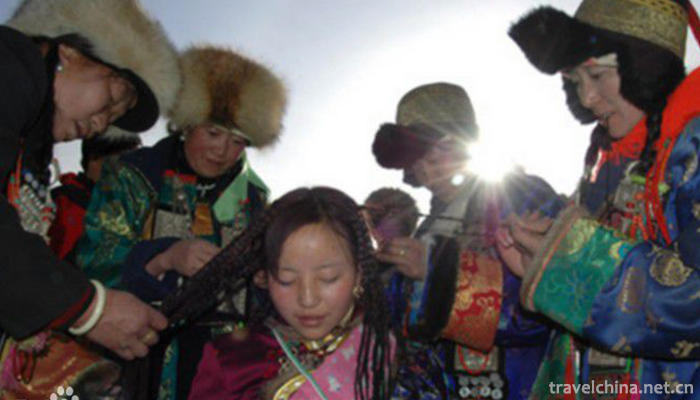
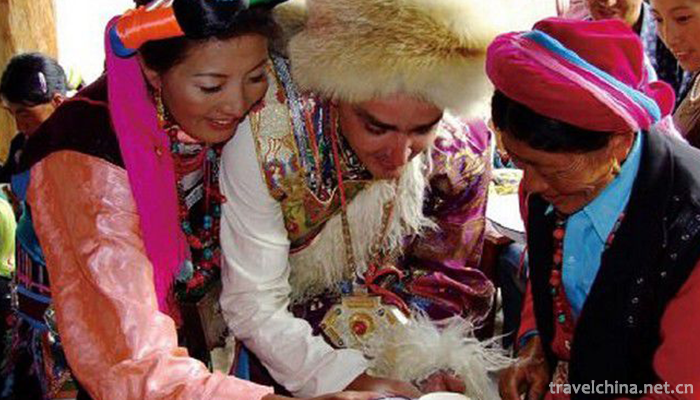
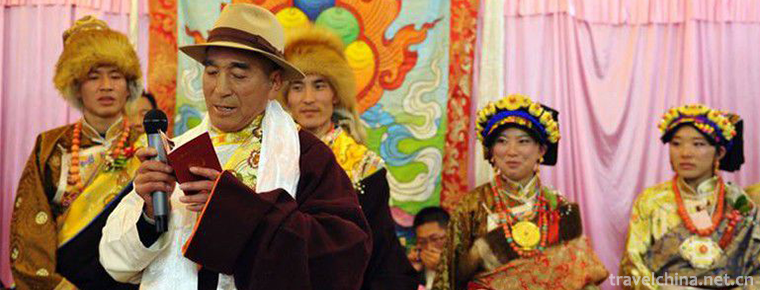
Eighteen Sayings on Tibetan Wedding Banquet
-
Yan Nanfei Tea Field Scenic Area
Yannan Fei Tea Field Resort, located in Yanyang Town, Meixian District, Meizhou City, is the first AAAA-level tourist attraction in eastern Guangdong Province, and has been upgraded to 5A-level touris
Views: 196 Time 2018-12-12 -
Hometown of Zhu De
Zhude Hometown Scenic Spot: National AAAAA Tourist Scenic Spot, National Key Cultural Relics Protection Units, National Patriotic Education Demonstration Base, National Anti-corruption Education Base,
Views: 314 Time 2018-12-12 -
Caozhou Peony Garden
Caozhou Peony Garden is located in Renmin North Road, Peony District, Heze City, Shandong Province. It is the largest and most diverse peony garden in Heze City.
Views: 200 Time 2019-01-04 -
Shimen Xianhu Scenic Area
Shimen Xianhu Scenic Area is the first national 3A-level tourist scenic spot in Rongan County, located in Liuzhou, Guangxi. It has high Gorges out of Pinghu Lake
Views: 133 Time 2019-02-08 -
Huangmei Opera
Huangmei Opera, formerly known as Huangmei Diao and Tea Picking Opera, originated from Huangmei Opera in Hubei Province and grew stronger than Anqing Opera in Anhui Province.
Views: 168 Time 2019-05-04 -
Talking about ancient times
Telling the ancients means telling books and stories. It is a traditional language performing art form in which ancient artists use Quanzhou dialect in Minnan language to re-create and deliver novels
Views: 318 Time 2019-05-05 -
Jinhua Taoism
Jinhua Daoqing is also known as singing news and persuading Shiwen. It is a traditional rap art in Zhejiang Province. It combines with Hangzhou gongshu, Wenzhou drum lyrics, Ningbo
Views: 270 Time 2019-05-06 -
Firing Techniques of Longquan Celadon
Longquan celadon firing technology, the traditional ceramic technology of Longquan City, Lishui, Zhejiang Province, is one of the national intangible cultural heritage.
Views: 152 Time 2019-05-14 -
Yao Nationality Medicine
Yao medicine is a traditional medicine summarized by the Yao people in their struggle against diseases. It has systematic medical theory and rich clinical experience. It has distinct national and loca
Views: 204 Time 2019-07-11 -
Needlework of Chinese embroidery
Category: random needling, straight needling, disc needling, trowel needling, grabbing needling, flat needling, scattered wrong needling, weaving embroidery, applying needling, auxiliary needling, variant embroidery
Views: 149 Time 2020-12-12 -
History of Deyang
In ancient times, it was a place of hundred PU. In the fifth year of King Shenliang of Zhou Dynasty (316 BC), that is, in the ninth year of gengyuan, King Huiwen of Qin Dynasty, Qin destroyed the two states of Bashu and established two prefectures of Bashu. Today, Deyang Prefecture belongs to Shu Prefecture. County under the county, County Pavilion.
Views: 139 Time 2020-12-14 -
History of Mianyang
Mianyang, located in the south of Mianshan mountain, was named Mianyang in 1913 according to the ancient meaning of "south mountain and North Water" as "Yang".
Views: 159 Time 2020-12-14
